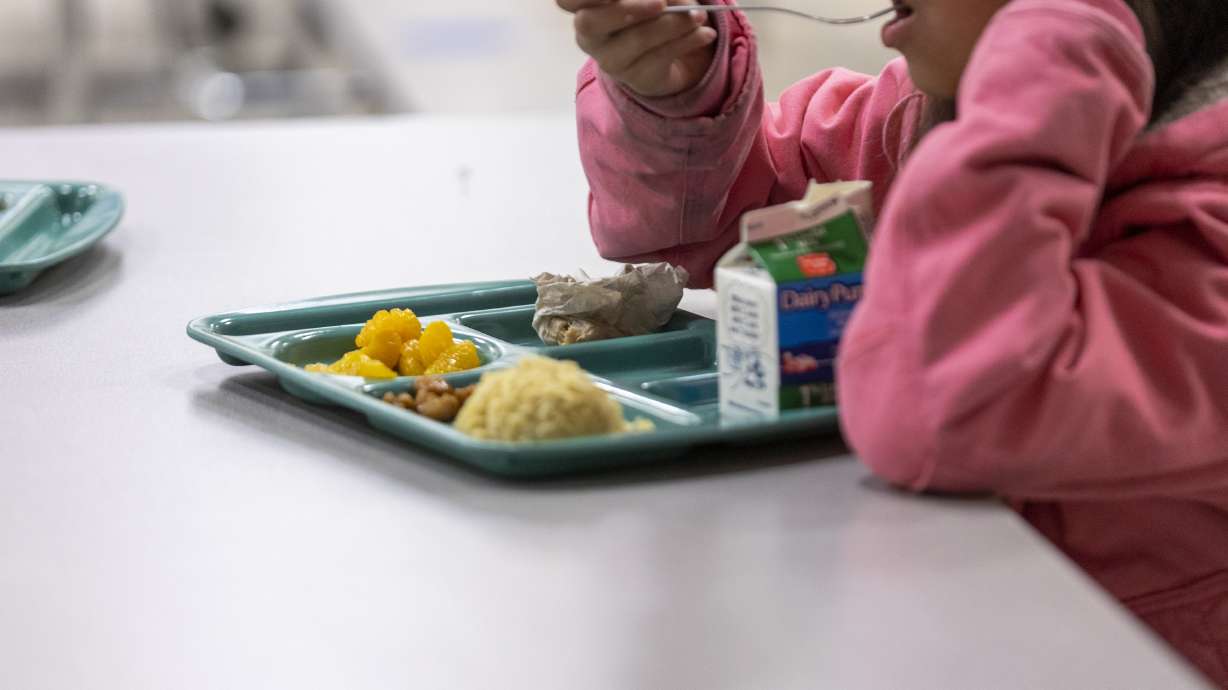Estimated read time: 2-3 minutes
This archived news story is available only for your personal, non-commercial use. Information in the story may be outdated or superseded by additional information. Reading or replaying the story in its archived form does not constitute a republication of the story.
SALT LAKE CITY — Utah has approximately $2.8 million in outstanding school lunch debt, and to help address the issue, Utah Gov. Spencer Cox on Tuesday redirected $1.2 million into a new grant program.
Cox redirected the funds, originally part of the American Rescue Plan's Emergency Assistance to Non-Public Schools, to the Governor's Emergency Education Relief Program, creating a new grant in the state grants system.
"Our students are the future of Utah, and investing in their health and education is vital to the success of our state," Cox said in a statement. "We are committed to ensuring Utah students receive the meals they need. I am grateful for the cooperation of the State Board of Education, our schools and districts."
The grant will allow local education agencies across the state to apply for reimbursement of school lunch debt attributable to low-income families.
Today, I'm excited to announce we're redirecting $1.2 million from the American Rescue Plan into a new grant program. Schools can now apply for reimbursement of school lunch debt attributable to low-income families, ensuring every student has the support they need. Let's keep…
— Utah Gov. Spencer J. Cox (@GovCox) September 3, 2024
While this addresses part of Utah's school lunch debt, middle-class families are also shouldering the burden of rising prices, leading to more school lunch debt.
During an X Spaces discussion hosted online last week by Silicon Slopes executive director Clint Betts aimed at tackling lunch debt, Utah Rep. Tyler Clancy, R-Provo, discussed an idea he'd previously proposed to the Public Education Appropriations Subcommittee that would see the Utah Legislature appropriate $4 million to eliminate the reduced-price meal category for school students and provide the meals to students from low household incomes at no cost.
The request was not funded, but Clancy said that he would continue to work on the issue.
"I think it's time that we look at opening that up and eliminating the reduced-price category to expand," Clancy said. "Those families that, for a long time, we've always thought of as middle-class, they're feeling the squeeze now more than ever."










